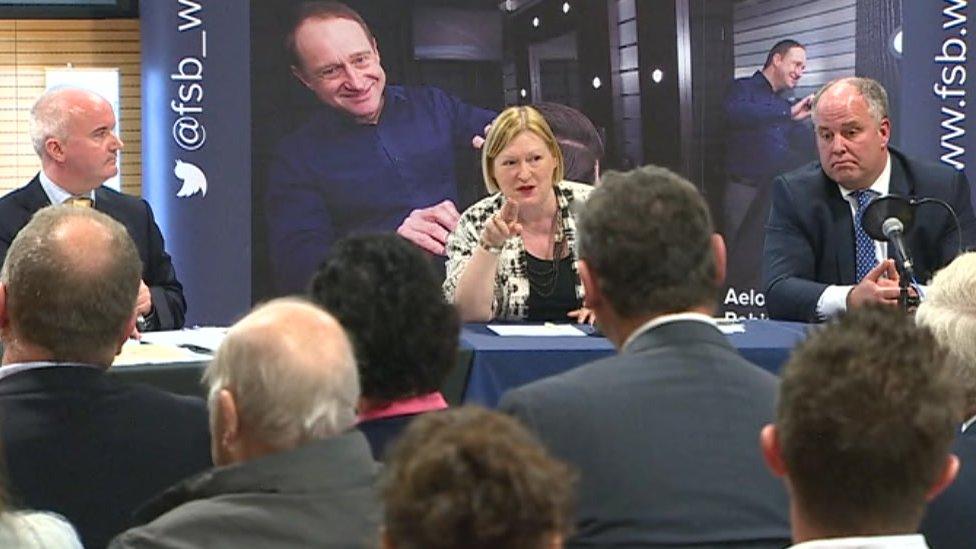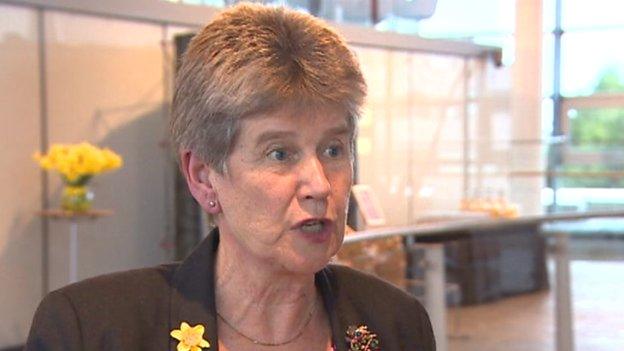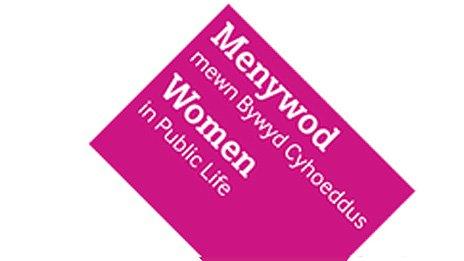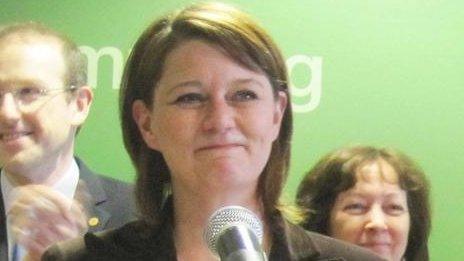'Stagnating' risk in lack of women assembly members
- Published

Leanne Wood (Plaid Cymru) and Kirsty Williams (Lib Dem) are among the party leaders
Women's chances of being elected to the assembly need to be boosted to prevent it "stagnating", campaigners claim.
Men are more likely to be in safer seats while women are defending most of the marginals in May, according to the Electoral Reform Society, external (ERS).
It fears there could be as few as 22 female AMs out of 60, compared to 25 at the 2011 election and 31 from 2005-7.
It calls for women to be selected for safer seats, and extra regional AMs to be created giving more opportunities.
'Flat line'
An ERS report on Monday identified 11 eleven "battleground" constituencies that might change hands in 2016, of which women were defending ten.
By contrast, women were holding just eight of the 29 constituency seats judged by the society to be safe for the sitting party.
As a result, the ERS claimed the number of women AMs could "flat line", projecting between 22 and 28 women elected.

Labour's Economy Minister Edwina Hart is among those not seeking re-election in May
Prof Laura McAllister of Liverpool University said the Welsh Assembly and Welsh Government had been "world leaders" in women's representation.
"From 2000-2005 over half of all cabinet ministers, and from 2005-2007 over half of all Assembly Members were women - a global first," she said in the foreword to the report.
"But that early promise has stalled and, as this report shows, Wales now risks falling back."
Steve Brooks, director of ERS Cymru, said: "This report makes clear that we are at risk of seeing a stagnating Senedd when it comes to female representation this May.
"Parties need to take action to ensure that women are selected in winnable constituency seats, particularly when sitting AMs retire.
"But overall, we need a larger assembly to give space for the diversity of Wales to be represented - with more proportional list AMs, where women are more likely to be selected."
- Published4 March 2015

- Published8 March 2015

- Published4 March 2014

- Published2 October 2013

- Published24 February 2013

- Published27 January 2013
